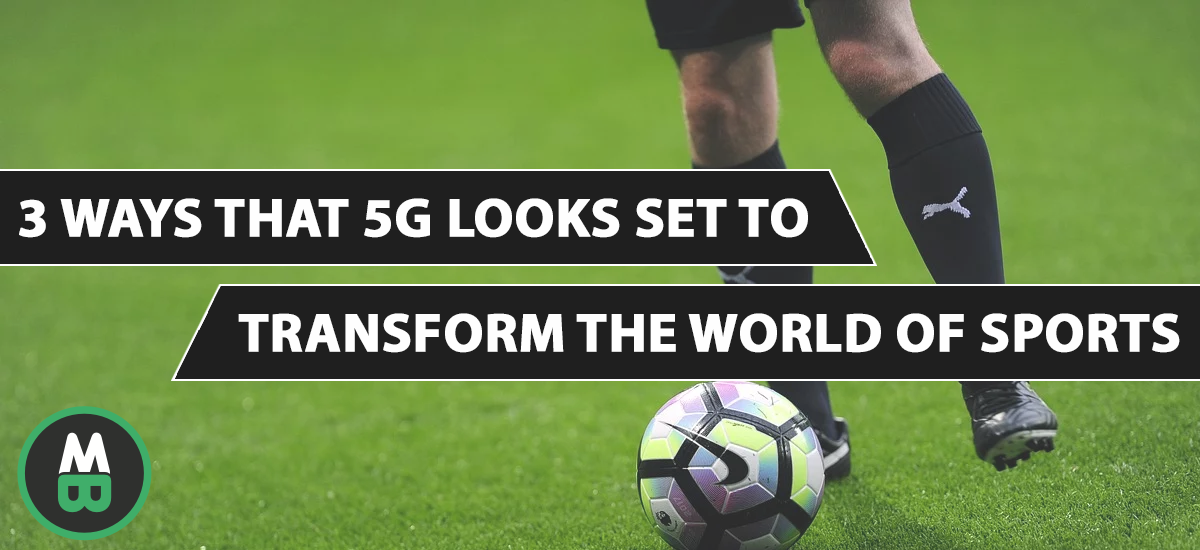3 Ways That 5G Looks Set to Transform the World of Sports
May 5, 2020

Mobile technology has had a massive impact on how many of us have accessed sports coverage in recent years. Scores, news, odds and vital statistics are all available at the touch of a button on smartphones and tablets, meaning we are arguably more up-to-date with events on and off the field than ever before.
However, sport’s relationship with mobile technology looks set to go up a gear in the future thanks to the emergence of 5G – as what it is capable of far outstrips anything that has gone before.
What is 5G?
For the uninitiated, 5G stands for ‘fifth generation’ and it refers to the latest form of mobile technology which is being put into use across the globe. The next step up from 4G, the technology offers both faster upload and download speeds, with the BBC suggesting back in January that it could ultimately allow you to download a full HD film in just a minute.
The improved performance that people can expect was highlighted back in 2018 in a video that Ericsson put together with the help of Paris Saint-Germain. In the clip, players from the French side tried to kick a ball around while wearing 4G headsets but struggled due to a slight delay. However, they suffered no such issues when using separate headsets boasting 5G.
This low latency offered by 5G is expected to have an impact across so many different areas, including in the ongoing development of self-driving car technology. However, it is also anticipated that it will have a bearing on sport too – and here are just a few suggestions on how it might change the game for players, coaches and fans.
1. For players
Most fans will already be aware of how clubs monitor player performance these days, as many will have seen footballers using GPS tracker vests like the Playertek equipment created by Catapult. The company states that its pod can make around 2,500 measurements a second and can detail more than six million data points per match.
This kind of technology may well be boosted further through the use of 5G, as it could mean that information on individual performances can be gathered quicker than before. As well as affecting training, this may also provide valuable insights which can assist players on a matchday.
2. For teams
Such information will, of course, be very useful to management and coaching staff within teams too. As well as providing key data on fitness, it may also assist when it comes to decision-making during matches or events – particularly substitutions or tactical changes.
In October last year, Vodafone released research which also found that 76 per cent of business decision-makers in sport felt their club would use 5G as a platform for innovation. Many also felt it could go on to have a greater impact on fan experiences than 4G has.
3. For fans
Speaking of fans, the Vodafone research suggested clubs could use 5G to boost engagement through new innovations like mixed-reality experiences or by providing real-time access to data.
On the latter point, statistics are already a major part of watching sport on TV and the new technology may only improve the level of information that broadcasters are able to provide. Similarly, such data could also have an impact on many bookmakers and the sports betting world in general. As SBO.net explains in its UK bookmakers analysis, in-play and streaming have become a big part of the industry. With this in mind, 5G could boost the video services offered by a number of sports betting brands and also allow them to make swifter changes to in-play odds as the action unfolds.
An exciting new development
5G looks set to unlock new opportunities in a host of different areas, but there is plenty to suggest that the world of sports will be massively affected too.
It will be fascinating to see how things develop in the months and years ahead, as well as whether it ultimately does transform the way people play, monitor and watch different sports.
Comments